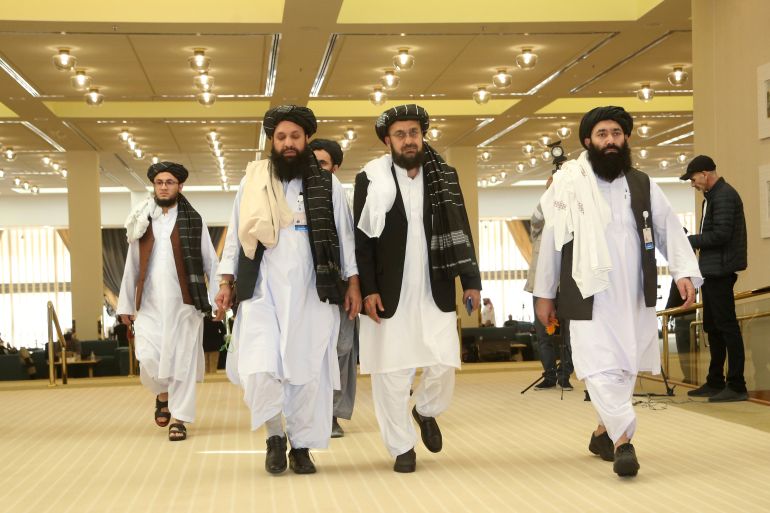Taliban delegation to hold humanitarian talks in Norway
Norway’s foreign minister stresses that the planned visit is not a ‘legitimisation or recognition of the Taliban’.

A Taliban delegation will hold talks with Western officials in Oslo next week on human rights and humanitarian aid in their first official visit to the West since returning to power, the Norwegian and Taliban governments have said.
The Norwegian Foreign Ministry said Friday that it has invited representatives of the Taliban to Oslo from January 23 to January 25.
Keep reading
list of 3 itemsTaliban rule marked by killings, ‘litany of abuses’, UN says
Taliban seeks greater role in distribution of Afghan foreign aid
Norwegian newspaper VG said special representatives from the United States, Germany, the United Kingdom, France, Italy and the European Union were expected to take part. The ministry did not comment on the newspaper’s report.
Norwegian Foreign Minister Anniken Huitfeldt stressed that the visit was “not a legitimation or recognition of the Taliban. But we must talk to those who in practice govern the country today.”
”We are extremely concerned about the serious situation in Afghanistan,” Huitfeldt said, noting that economic and political conditions have created “a full-scale humanitarian catastrophe for millions of people” facing starvation in the country.
The acting foreign minister in the Taliban government, Amir Khan Muttaqi, will lead the Taliban delegation to Norway. The trip would be the first time since the Taliban took over the country in August that their representatives have held official meetings in Europe. They have previously travelled to Russia, Iran, Qatar, Pakistan, China and Turkmenistan.
Zabihullah Mujahid, the Afghan deputy culture and information minister, said Muttaqi expects to hold separate meetings with the US delegation and bilateral talks with European representatives.
The rights of women and girls in Afghanistan are likely to feature prominently in the talks, along with the West’s recurring demand for the Taliban administration to share power with Afghanistan’s minority ethnic and religious groups.
Deputy culture minister Mujahid told The Associated Press news agency on Saturday that the new Afghan rulers aimed to have schools open for girls and women in late March, after the Afghan new year.
Education for girls currently is restricted beyond the seventh grade in all but 10 provinces. In the capital, Kabul, private universities and high schools have continued to operate uninterrupted. Most are small, and the classes have always been segregated.
The Norwegian foreign ministry said the Taliban delegation’s meetings with Afghans in Norway would include “women leaders, journalists and people who work with, among other things, human rights and humanitarian, economic, social and political issues.”
Muttaqi is certain to press the Taliban’s demand that nearly $10bn frozen by the United States and other western countries be released.
Earlier this week, a Norwegian delegation visited Kabul for talks on the precarious humanitarian situation in the country, the Ministry of Foreign Affairs said Friday.
The foreign ministry in Oslo said that Afghanistan is experiencing drought, pandemics, economic collapse and the effects of years of conflict.
According to them, some 24 million people experience acute food insecurity and are unsure of how to obtain enough food. It is reported that one million children may die of starvation.
It added that the UN estimates that famine will affect more than half of the population this winter and that 97 percent of the population may fall below the poverty line this year.
The announcement of the talks come days after the Taliban stormed an apartment in Kabul and arrested a female rights activist and her three sisters, AP reported, citing a witness.
A Taliban statement appeared to blame the incident on a recent women’s protest, saying insulting Afghan values will no longer be tolerated.
Meanwhile, Amnesty International on Friday urged the Taliban authorities to investigate the abduction of Alia Azizi, a female prison official who has been missing for more than three months.
“It’s been more than three months since Alia Azizi disappeared and her family still remains completely in the dark about her whereabouts. Her apparent abduction takes place within the context of the Taliban illegally detaining members of the former government, journalists, and assorted critics across the country,” said Zaman Sultani, Amnesty International’s South Asia researcher.